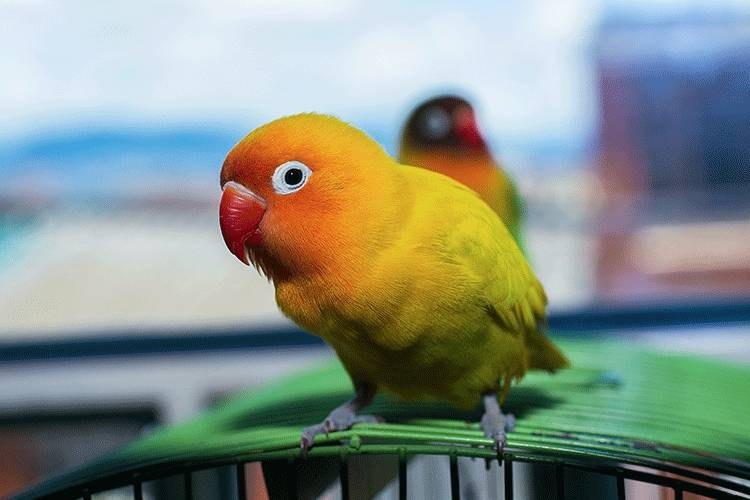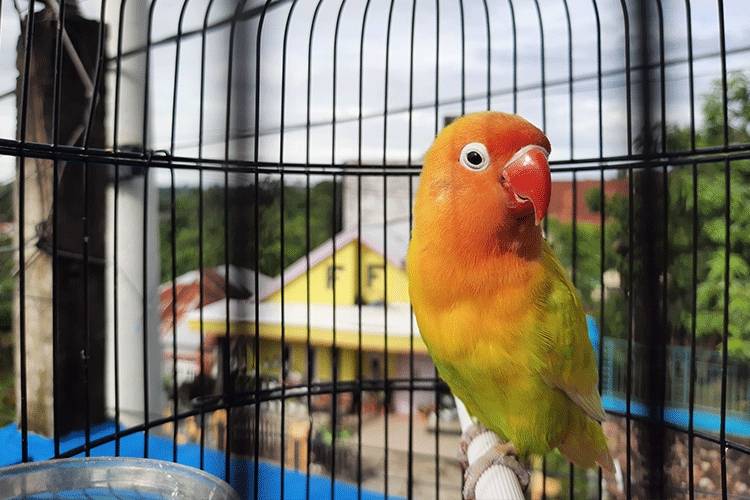Caring for a lovebird
In this article we tell you everything you need to know about caring for lovebirds and nymphs. How is your diet and hygiene? Do not miss it!
pets
Share

Lovebirds, nymphs and parakeets, belonging to the parrot family, are some of the favorite birds to have as pets. But, before deciding on one of them as a life partner, it is important to note that they are very intelligent birds and that they require specific care for their physical and emotional well-being.
It is important to know that these birds are not domestic, but are wild, so they retain many behaviours and instincts from their natural life. In addition, some of these birds are very long-lived, such as nymphs, which can live up to 20 years.
Caring for a nymph
As always, before acquiring a nymph or lovebird, we recommend a visit to the vet to inform us of their care. But let's see some simple tips that we must take into account for the care of these birds.
- Feeding: they need a diet as varied as possible. It is not advisable to maintain your diet based only on seeds such as birdseed, but you must always add fresh fruits and vegetables to their diet. Some foods like coffee, alcohol, chocolate, milk, cookies, avocado, and onion are highly toxic to them.
- Cage: must be suitable for these species, with a minimum size of 60 x 60 x 60 cm, and, if possible, it should be kept outside. And it is very important that it is square, since in round cages they feel insecure. Both nymphs and lovebirds must be able to move freely inside the cage and it is essential to put natural branches on them to avoid future problems with their legs. Of course, you have to place a container for water and another for food and do not forget to also have a large container so that they can take baths. Birds love them and, in addition, they need it to keep their plumage in good condition.

- Socialisation: they are very sociable animals that live in flocks in the wild. If they live side by side, they can develop behaviour problems that will affect their emotional and physical well-being. It is best to have them in pairs, but, if not possible, at least for the day they can be in the living room with us and later, at bedtime, take them to a dark and quiet room. This way, you can ensure their hours of rest, which is also important to them. We must always avoid drafts, extreme temperatures and possible sources of stress.
- Health: Regular visits should be made to an exotic animal veterinarian, as well as learning to observe them for possible health problems. Some symptoms that something is wrong can be a deformed beak, shortness of breath, spots around the eyes or the nostrils, changes in their faeces or problems with the shedding of the plumage, among others. Some of the causes that cause these health problems can be stress, parasites, poor diet or sudden changes in temperature. We must also be attentive to some common diseases such as chlamydophilosis, which is produced by the infection of a bacterium and that causes breathing problems or weight loss, and fowl pox caused by a virus that spreads slowly through the bird.






